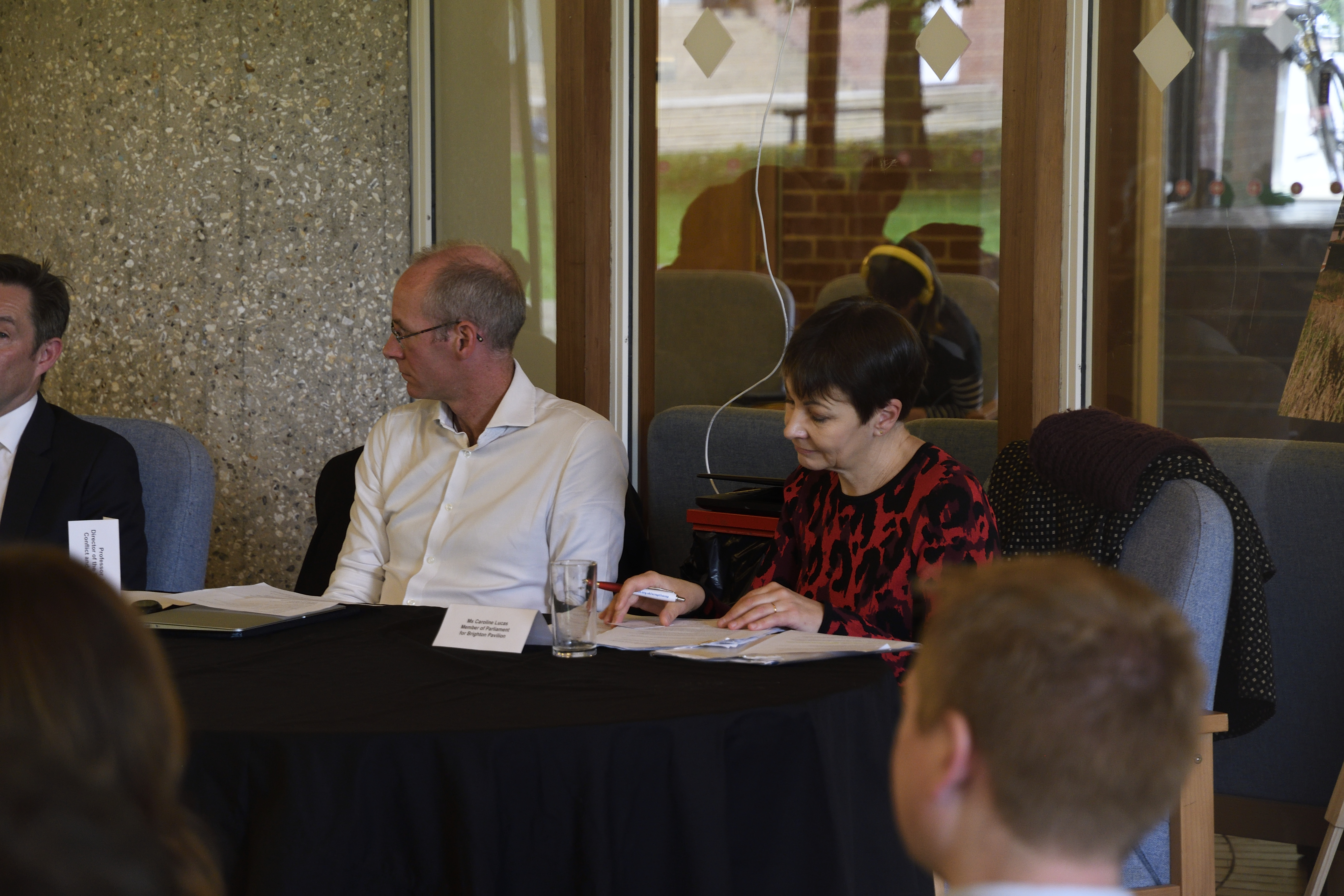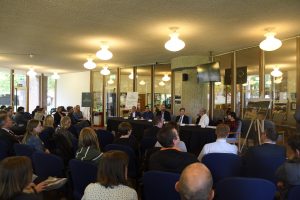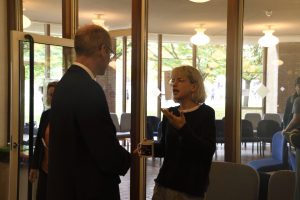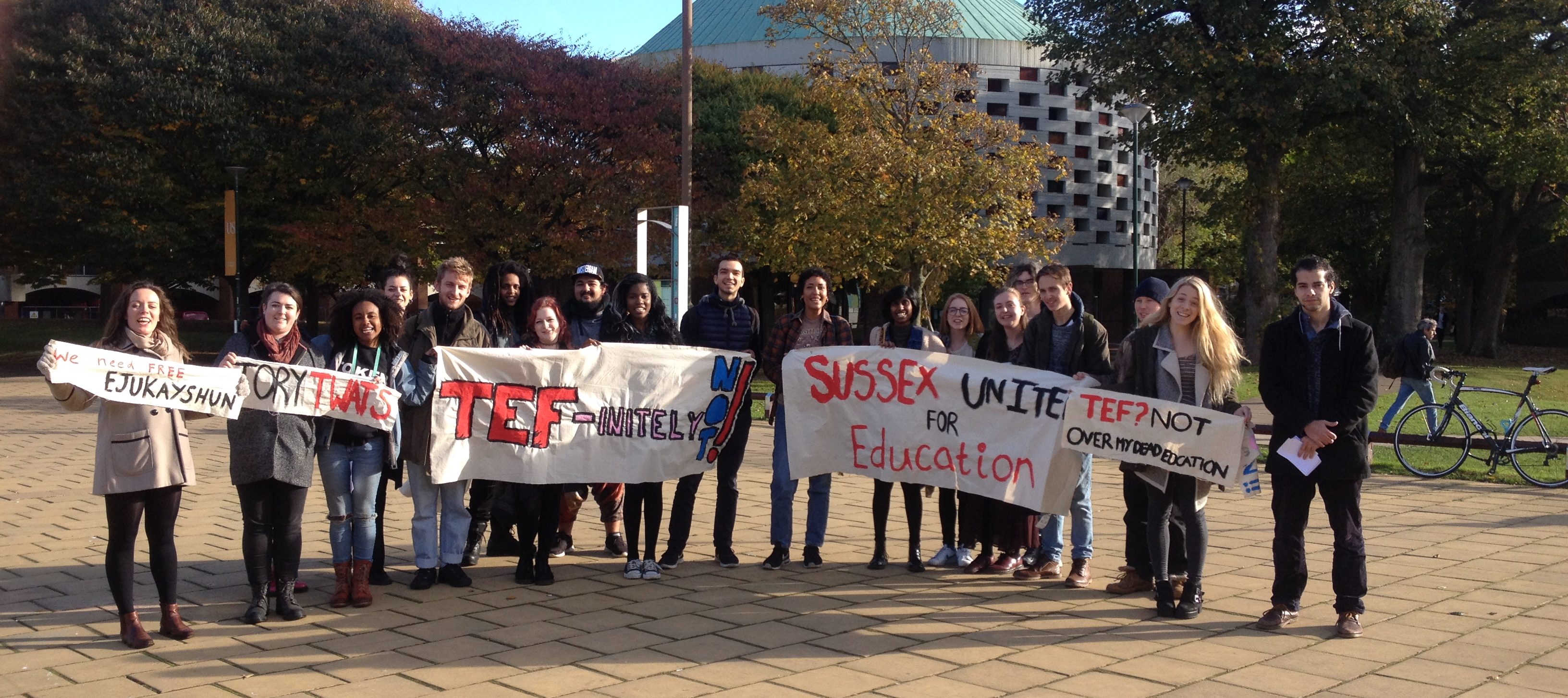On Friday 13 October Caroline Lucas, MP for Brighton Pavilion, switched on 3,000 newly installed solar panels. Ms Lucas was assisted by Jolyon Western, a Student Life Advisor, and Anna Watson, a PhD student, who both entered a competition to take part in the switch on.
The solar panel project is the biggest of its kind in the UK and is estimated to satisfy 5% of Sussex’s energy needs. The University estimates that this is enough energy to ‘power the University’s library for 12 months.’.
The University ‘aims to nearly halve its carbon emissions by 2020.’ and the solar panels are one of the first steps towards achieving this goal. The project cost an estimated £1.5 million. The Estates Team also aims to cut waste and announced its ambition to eliminate ‘23 tonnes’ of waste produced by disposable paper towels across campus. They estimate that 8 million of these towels are used on campus every year and are installing new energy- efficient hand dryers. They are also carrying out a survey on the dryers and are taking responses until 31st October.
The event was followed by a Q&A and panel discussion involving Lucas, Professor Selby, Professor Joseph Alcamo, Director of the Sussex Sustainability Research Programme, Dr Florian Kern, co-Director of Sussex Energy Group, and Simon Neale. Sussex alumnus Leo Hickman chaired the discussion.
The discussion focussed on changing the energy industry as a whole, climate change, emissions and national university efforts to become more sustainable. Caroline Lucas, for example, commented that too many resources were being focussed on Brexit, detracting from other policy areas, such as the environment.
One question put to the panel was: “Is Trump actually a good thing for the environment”. Lucas answered that Trump’s impacts now are hopefully less than they would have been decades ago and that sometimes it takes a ‘big bad figure’ to encourage mobilisation. However, Lucas also pointed to a ‘fifty percent’ decrease in the cost of offshore wind power, suggesting that it should be better utilized. She also drew attention to the issue of funding for developing countries, which could allow them to ‘leapfrog the dirtiest technology’ and produce ‘cleaner’ energy from the start.
Other panel members talked about the unsustainable nature of the coal industry, in more than one sense. The panel pointed out that subsidies may be necessary to prop up the industry in the future.
Caroline Lucas had to leave the discussion early due to undisclosed commitments. Unfortunately, this meant she was unable to answer any questions from the audience. The panel continued and discussed the need for better battery storage for renewables, how widespread they are and the domination of the energy industry by ‘The Big 6’.
One audience member had just enough time to challenge the panel on the University’s divestment from fossil fuels. Sussex had already committed to divestment after a student campaign by ‘Fossil Free Sussex’ but has since provided few details on the matter. She commented that, in the recent People and Planet University League Tables, Brighton University ranked second but Sussex ranked 81st, a large decline. She also criticised the lack of visibility of the University’s new ‘Go Greener’ initiative, the slogan being visible on posters around the event room, and said: “You have to really dig to find out” about it.
Simon Neale attempted to answer the question on behalf of the university. He said that the University is due to elaborate on its divestment plans in the current weeks but stated that the University still relies heavily on fossil fuel energy to power the campus. He also added that the 3,000 solar panels are a step towards sustainability and also added that there may be financial benefits for the university. Mr Neale also told the audience that the University Communications Team are aiming to improve their communication across the university. He also mentioned a ‘real-time information’ web page showing statistics on the new solar panels and said it would be easily accessible on the website in the coming weeks.
Other panel members were more critical, stating the University needs to do more in order to achieve its sustainability targets. They also suggested that the higher education sector as a whole needs to take more action. Especially so, as emissions do not stop at the edge of campus and university transport has a large environmental impact.




